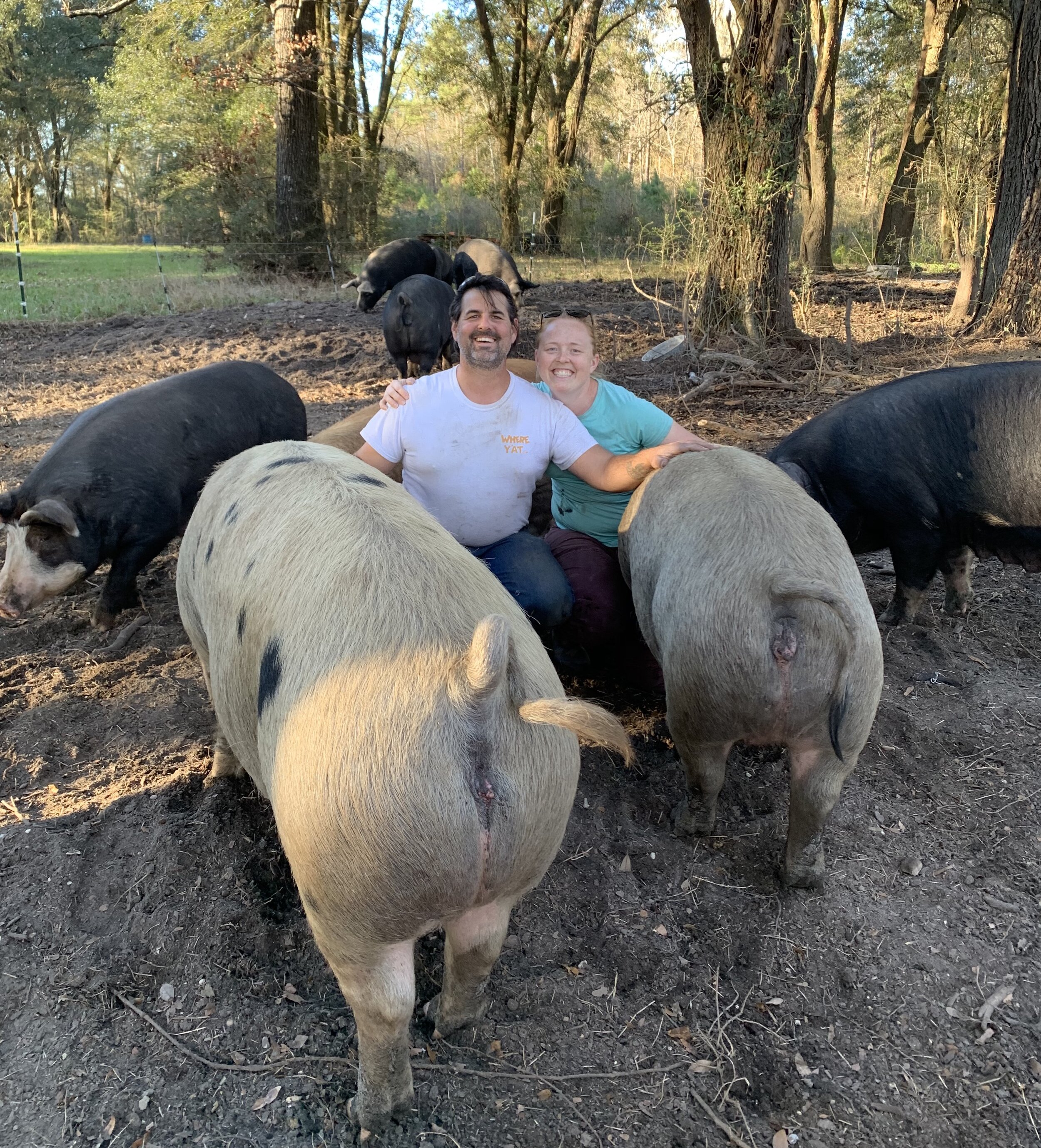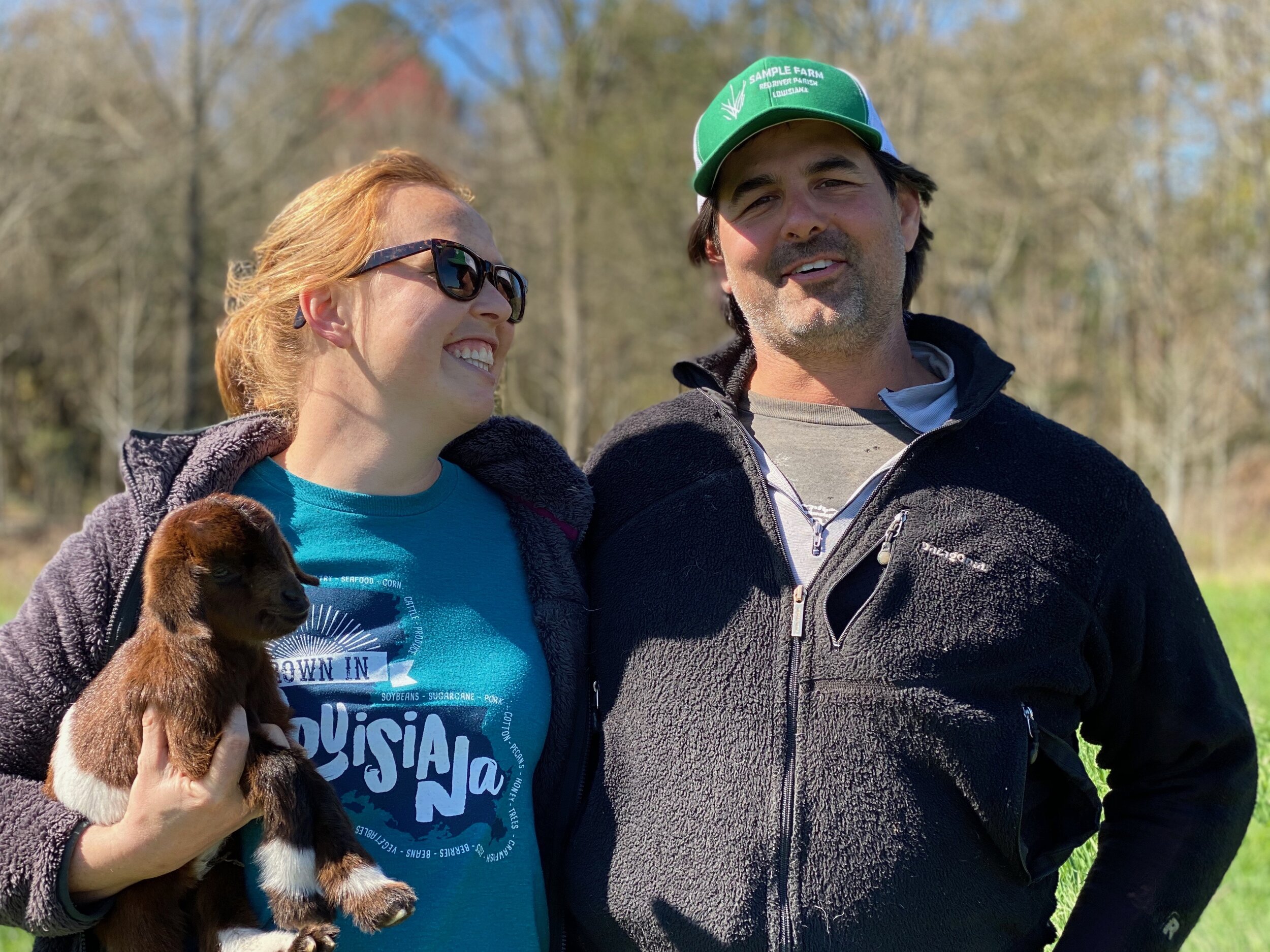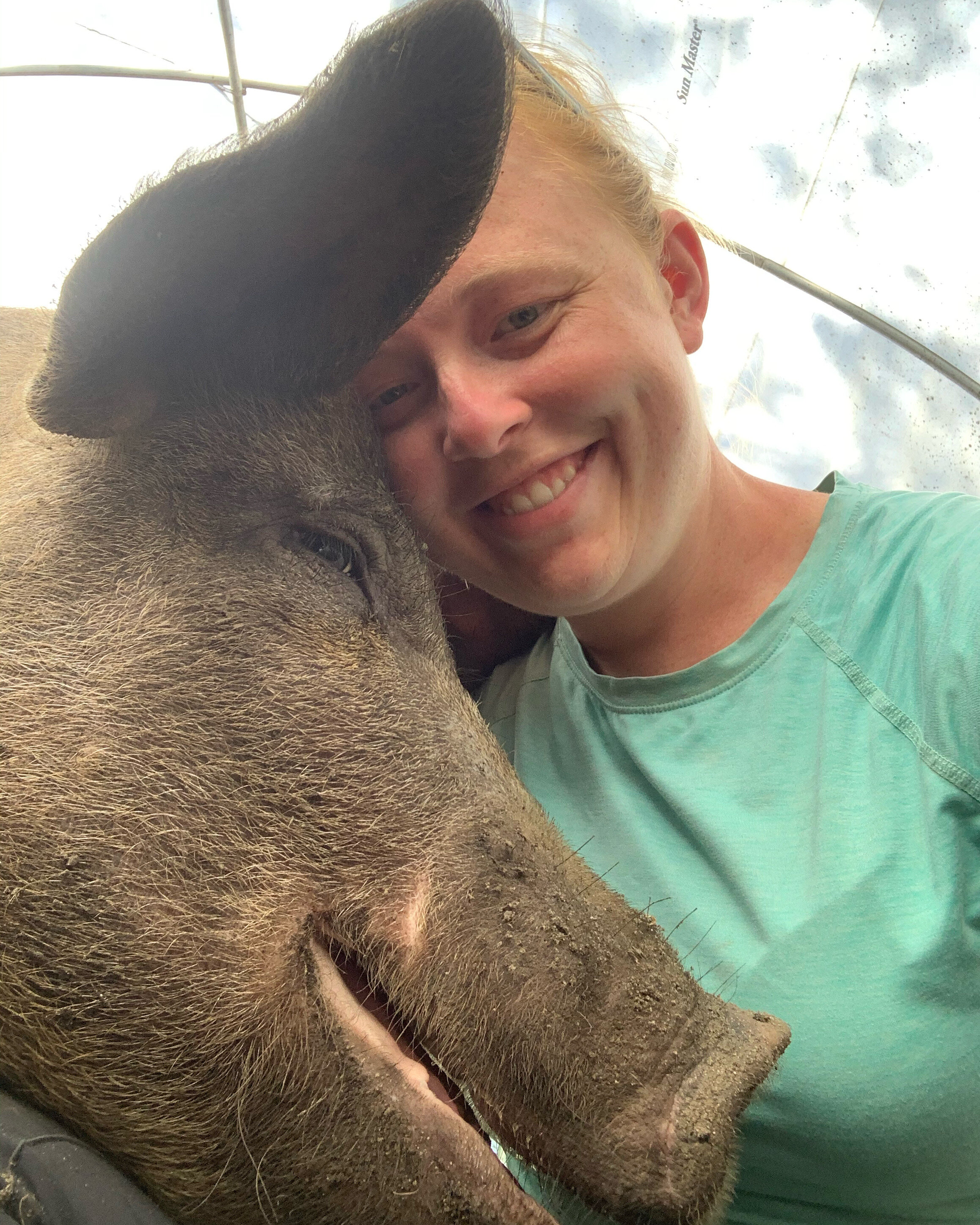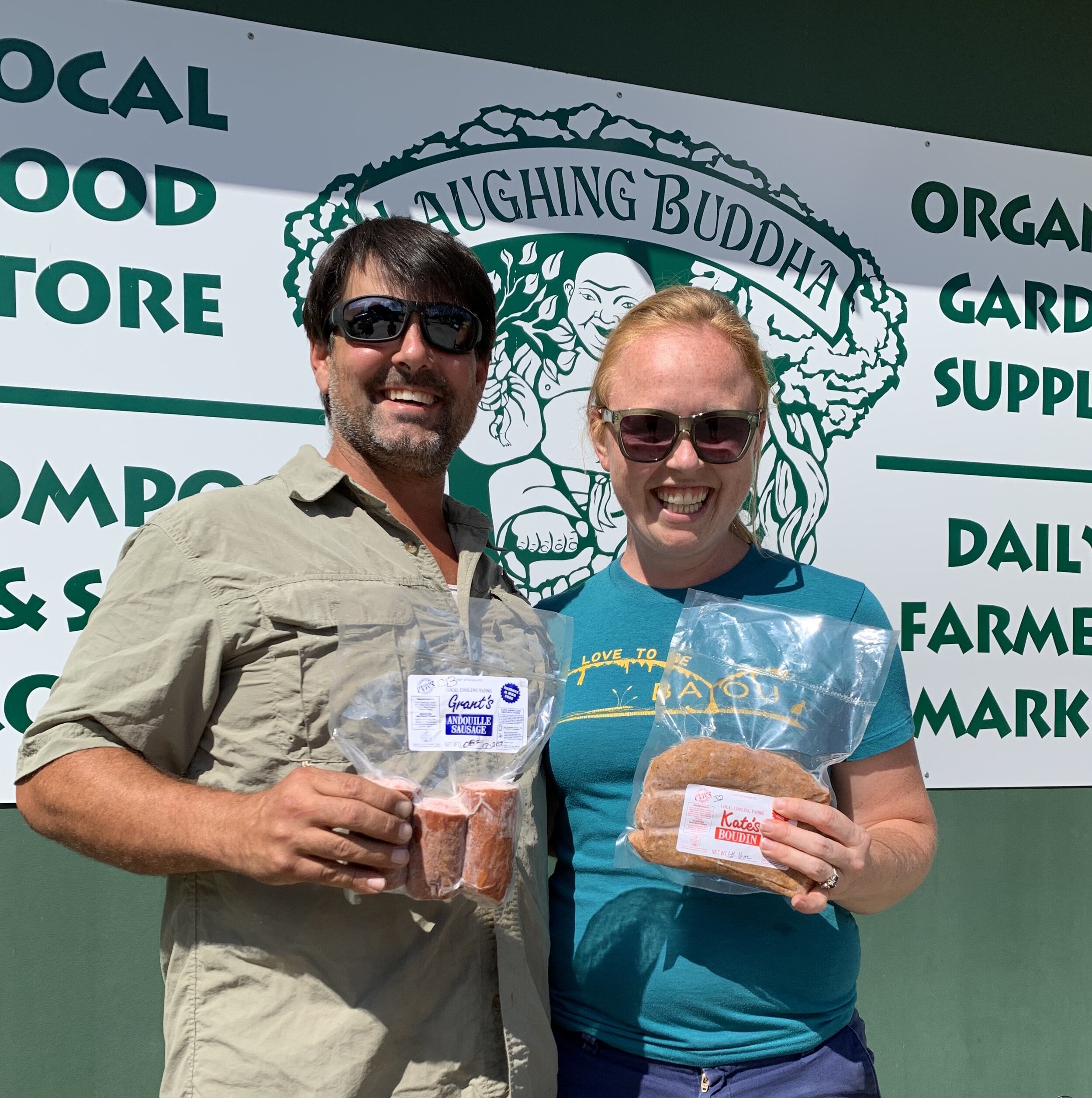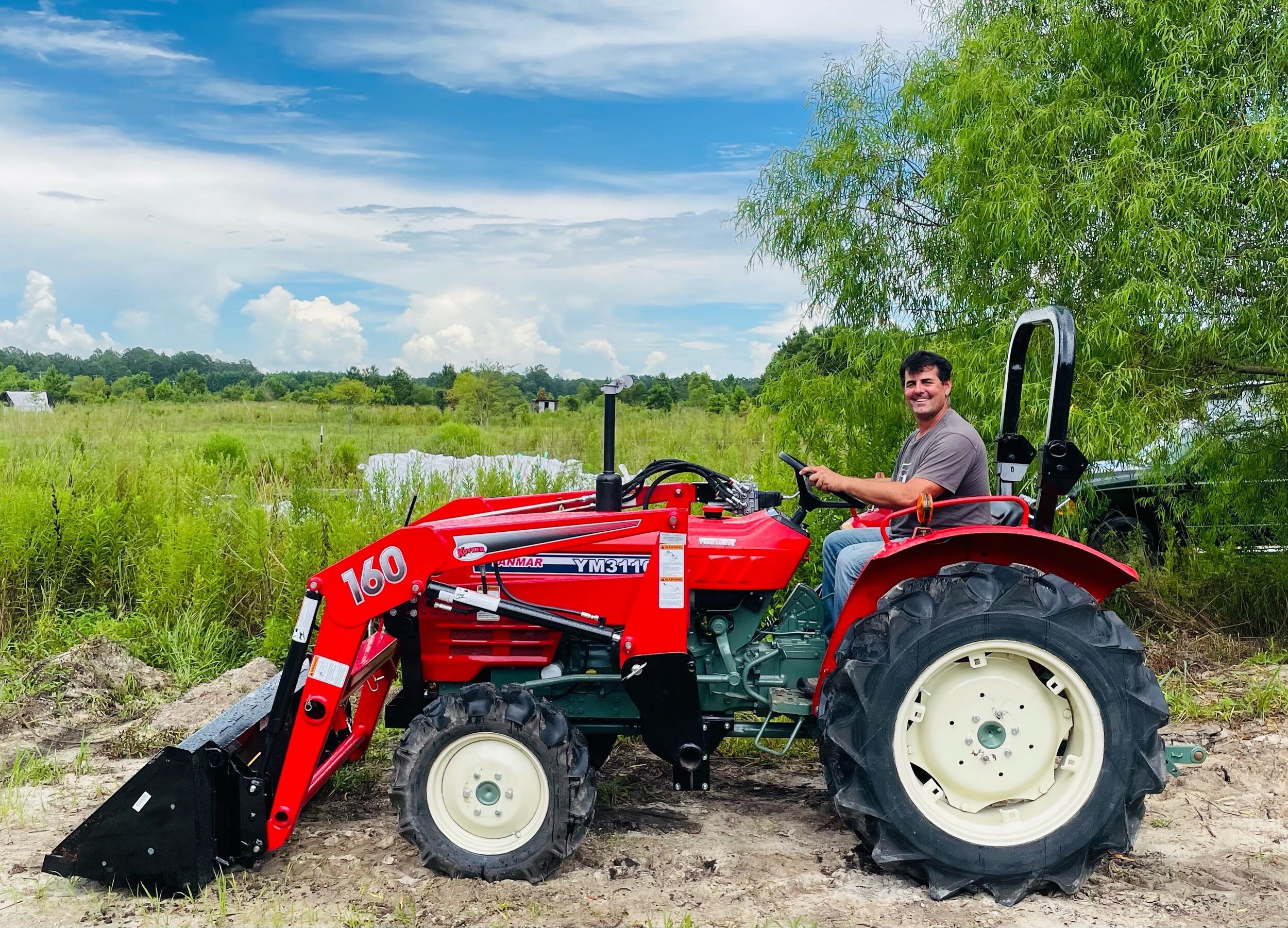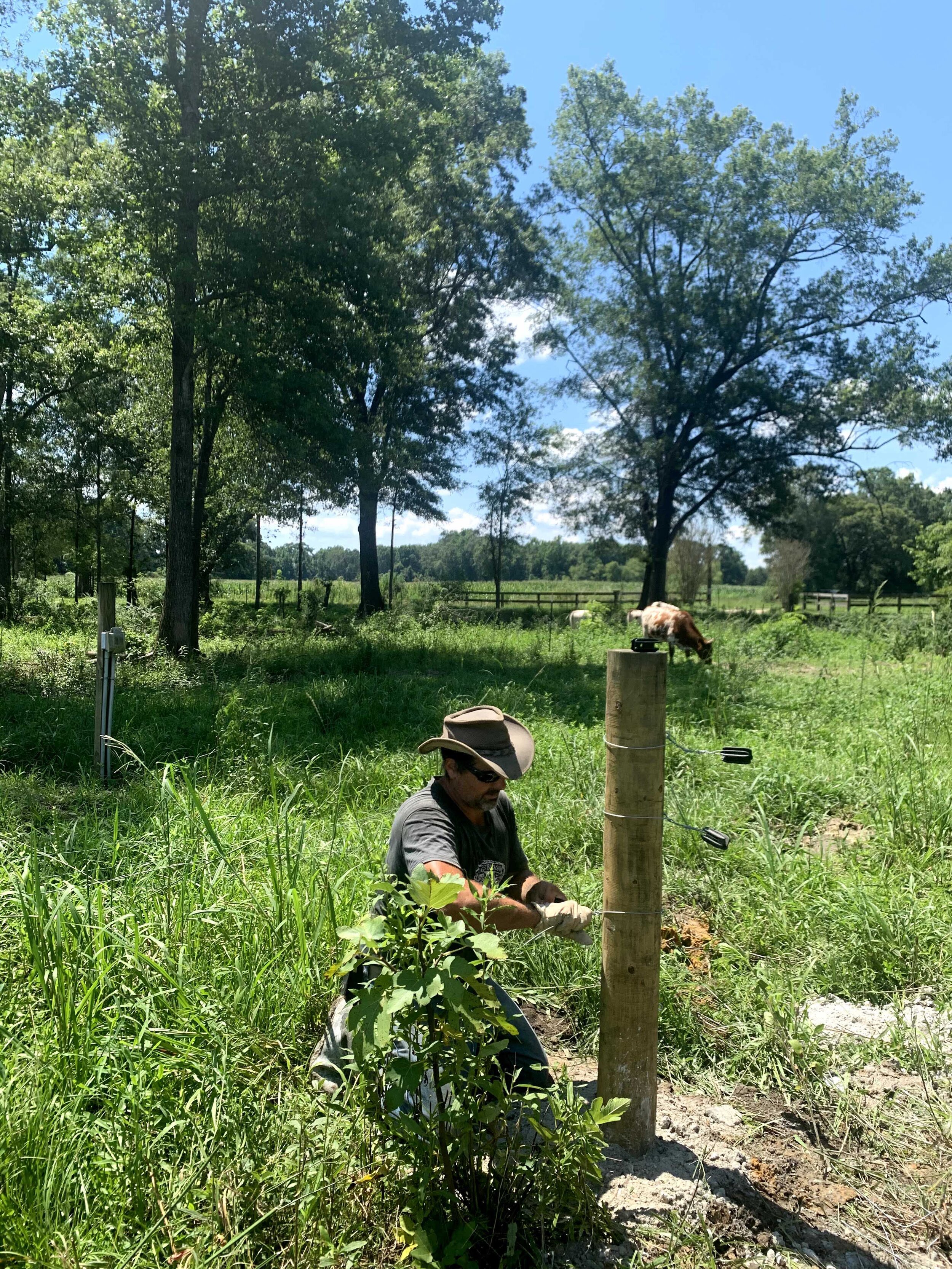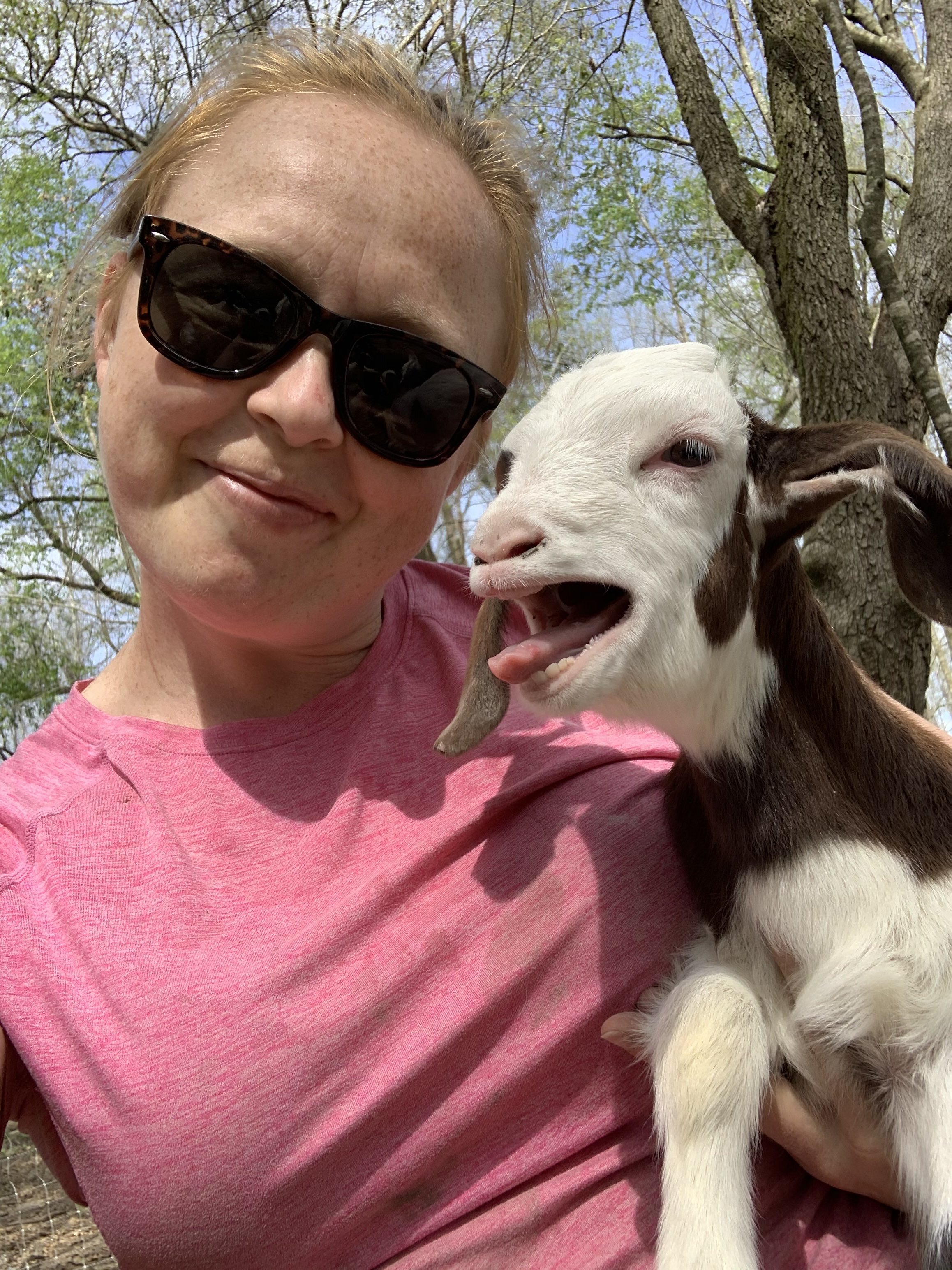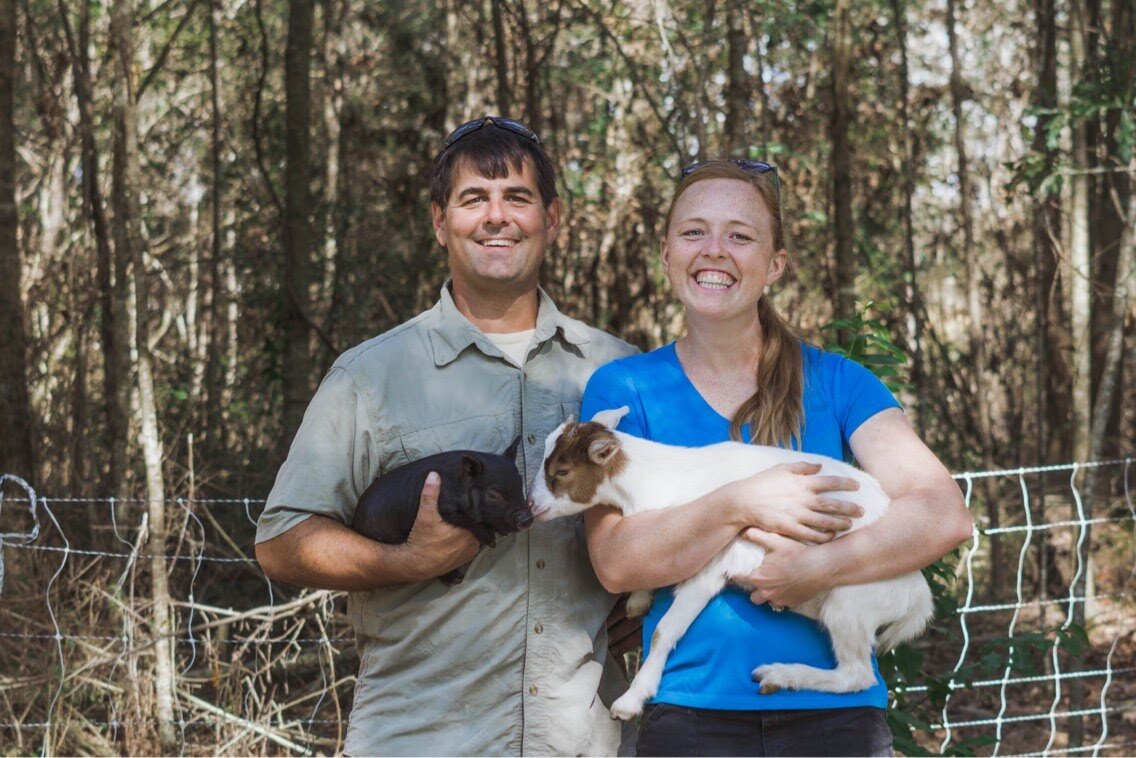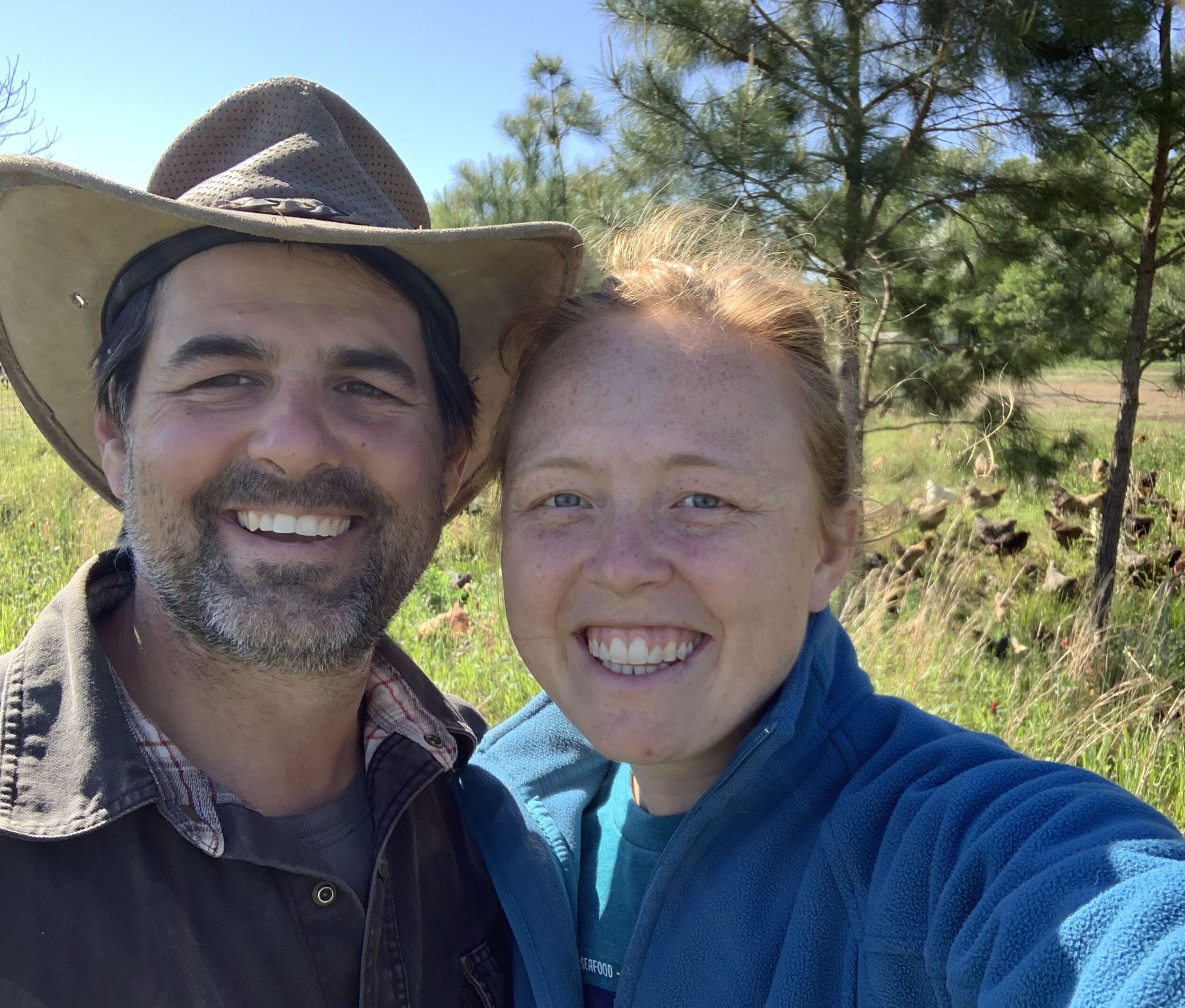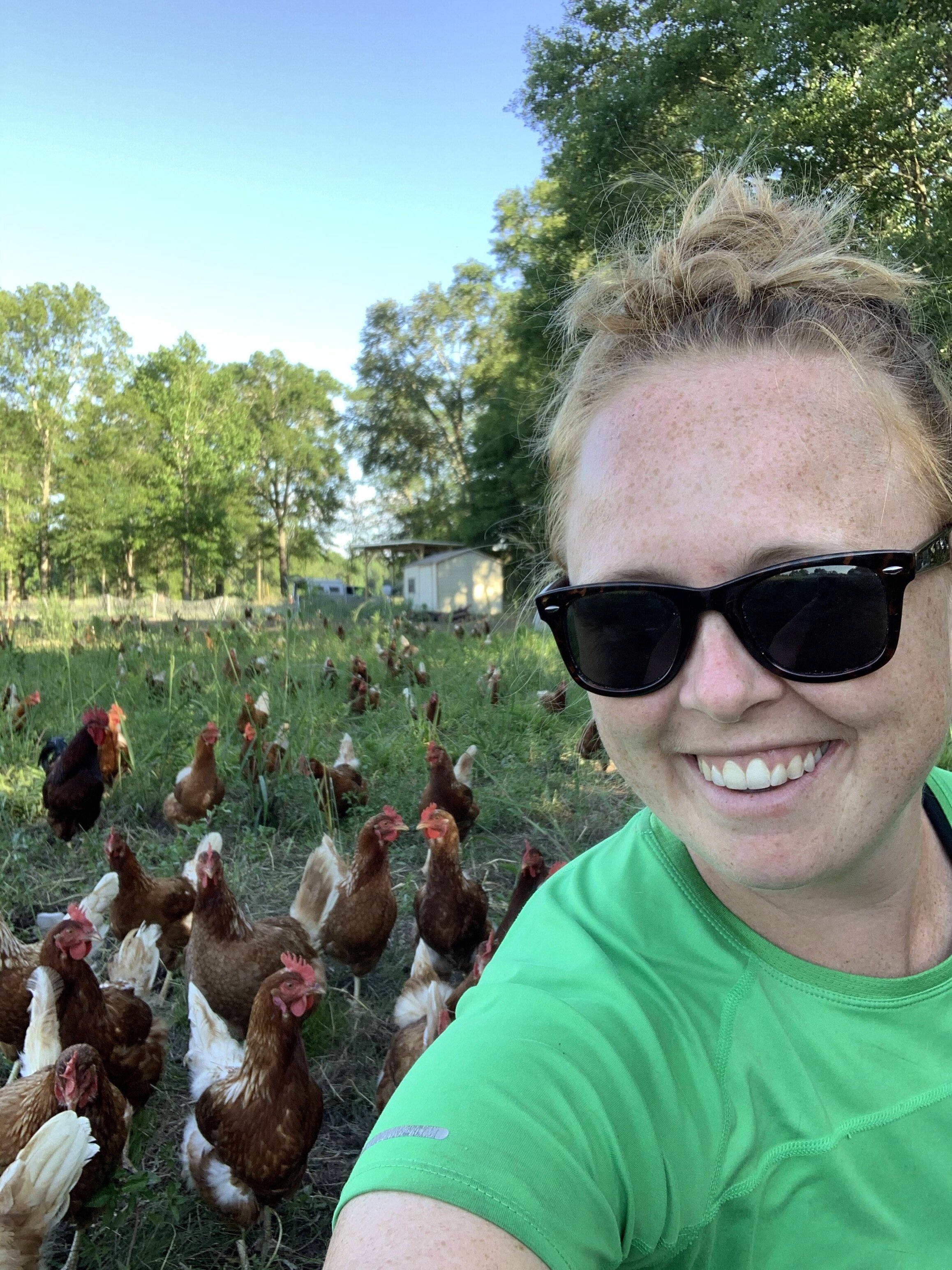Kate and Grant Estrade
Grant is a native of Metairie and graduate of Jesuit High School and the University of New Orleans. His first business venture at the age of 15 was raising mice and rats for sale at the pet shop where he worked. With the help of his father, he learned the basics of business accounting, and thanks to all the rodent poop, he learned the basics of nutrient cycling and compost -- which he used to grow his first vegetable garden.
In 2003, Grant started Laughing Buddha Nursery out of a simple desire to be his own boss and run a retail shop that met a community need: the then fledgling but growing demand for organic gardening supplies. Particularly after Hurricane Katrina struck the New Orleans area in 2005, people were concerned about the quality and potential contaminants in their backyard soil. On a small scale, Grant began composting and mixing organic soil blends to supply healthy, lead-free and nutrient-rich soil products for customers’ gardens.
The composting aspect of the business has evolved over the years, including a five-year stint where Grant launched and ran a new soil division for a sand and aggregate company. In 2016, he sold his shares of that business and moved the soil and composting operation to Local Cooling Farms.
In 2010, Kate came into the picture when she met Grant at Laughing Buddha (buying red wigglers for her apartment compost bin!). Kate grew up in a rural area south of Madison, Wisconsin, surrounded by conventional corn and soy fields. Her parents always grew a large vegetable garden and composted and as a teenager she spent summers working at a local garden center, but she never imagined going into gardening or agriculture professionally.
She studied journalism at the University of Missouri and held several reporting jobs prior to serving in AmeriCorps and moving to New Orleans in 2009. She worked as a fundraiser in nonprofits and universities for several years before joining Grant at Laughing Buddha and their farm, Local Cooling Farms, in 2016.
Independently before they met, Grant and Kate had become aware of the costs of conventional monocrop agriculture and factory farming livestock -- in animal welfare, environmental degradation and human health. They each had given up eating conventional meat when they met and felt there was a lack of farms in the area raising meat sustainably and regeneratively.
In the years before buying land and starting Local Cooling Farms, they grew a lot of vegetables in garden beds at the shop and at their house and Grant even had chickens, ducks and American Guinea Hogs in the yard of the shop, too.
Since reading the books The Omnivore’s Dilemma, Animal Vegtable Miracle and Fast Food Nation in 2008, Kate hoped to align her work to something related to sustainable agriculture someday, but she thought that might be working for a nonprofit organization or foundation that supported farms, rather than actually farming.
Grant and Kate bought the land that would become Local Cooling Farms in 2014 as a weekend home to hunt and forage on, or a someday/maybe homestead or farm “project.” Right away, a friend to whom Grant had sold the breeding stock of the American Guinea Hogs asked if they wanted to buy them back. Since Grant was coming up to the farm every few days to check the pigs’ feeders and waterers and fencing, it made sense to get some chickens and electric fencing to see how well they could handle any aerial predation in the area.
And as Grant began to get a handle on the wooded part of the land, he got some trial goats to eat the brush and cut branches and graze the overgrown pastures, too.
Essentially, one thing led to another and a farm was born! It wasn’t long after that that Kate’s timeline for quitting her job and joining the farm business kept progressively advancing and advancing until one day Grant told her to just give notice and take the leap.
They haven’t looked back!
Today, Grant manages the day to day activities on the farm, including care of all livestock and/or overseeing our farm hand’s daily livestock care, as well as the compost and vermicompost operations and continued infrastructure projects. He is a nature nerd and can identify most plants, birds, snakes, turtles and other wildlife encountered on the farm land off the top of his head.
Kate manages the shop and its employees, including ordering from all other farm vendors each week, and handling all customer communication both retail and wholesale. On the farm, she gets most involved during piglet farrowing and goat kidding seasons, takes care of bottle babies and has a freakish memory for the animals’ lineage and history. She loves to cook and is happy to spout off recipe ideas for nearly any product offered!


